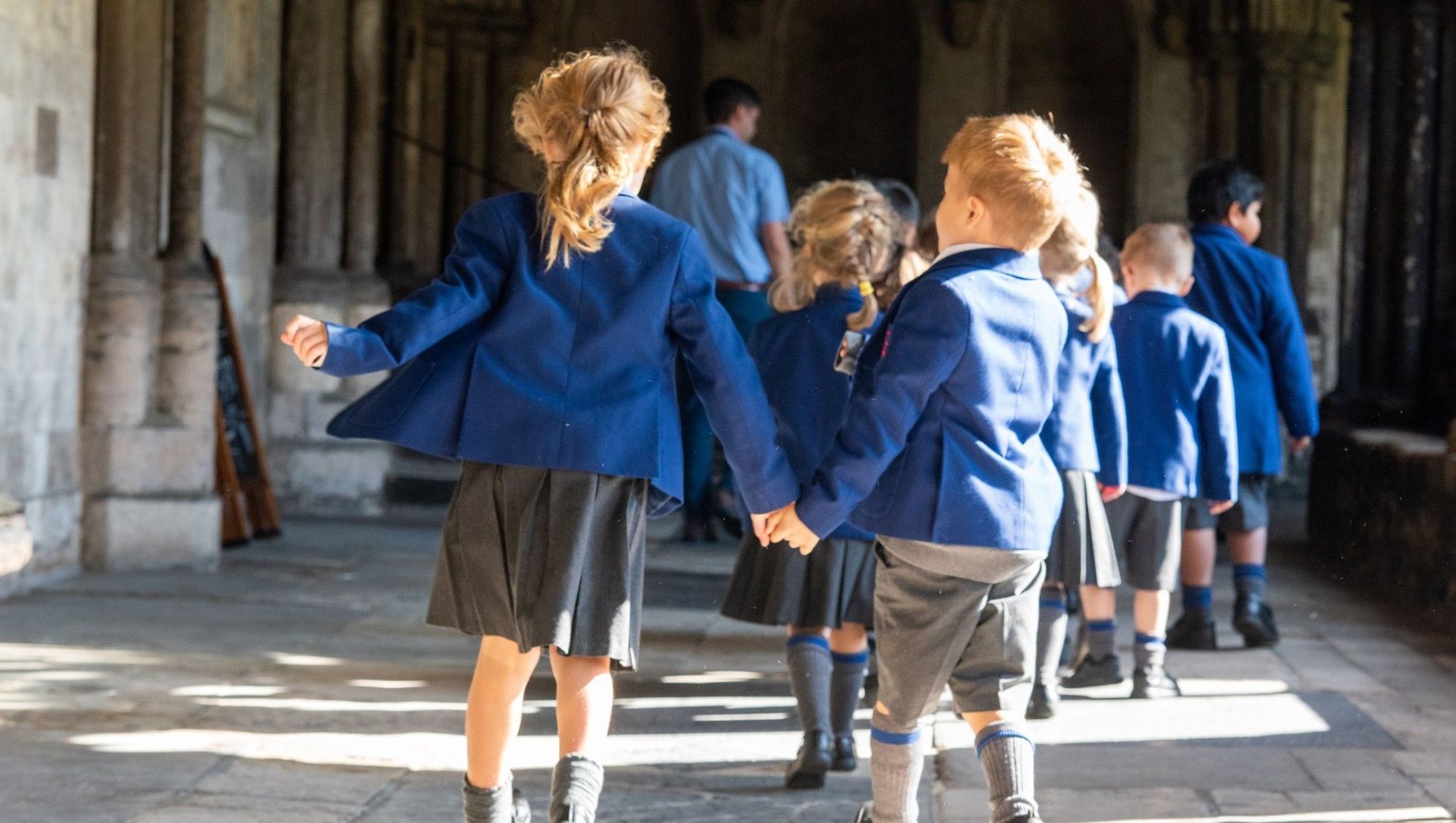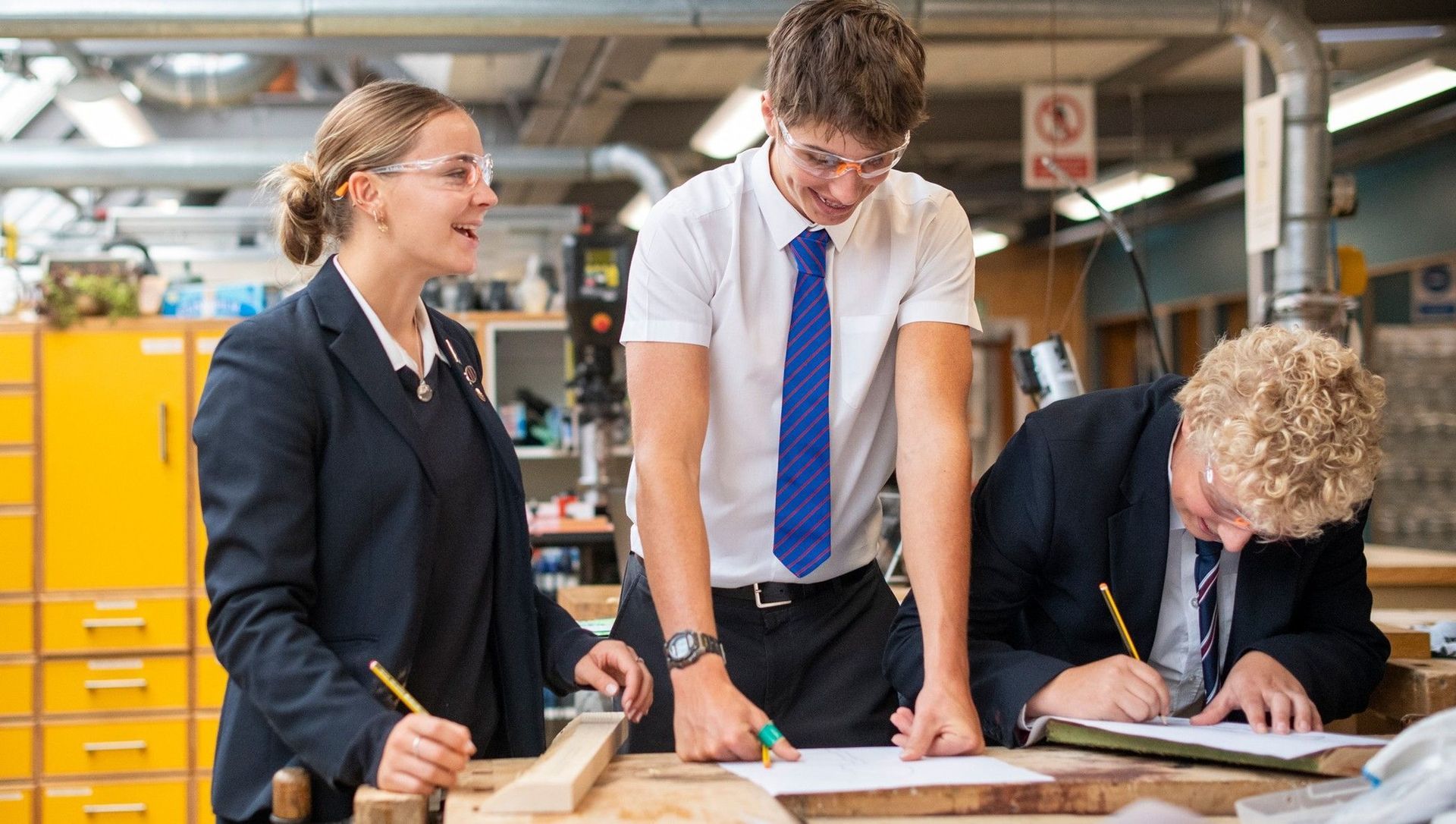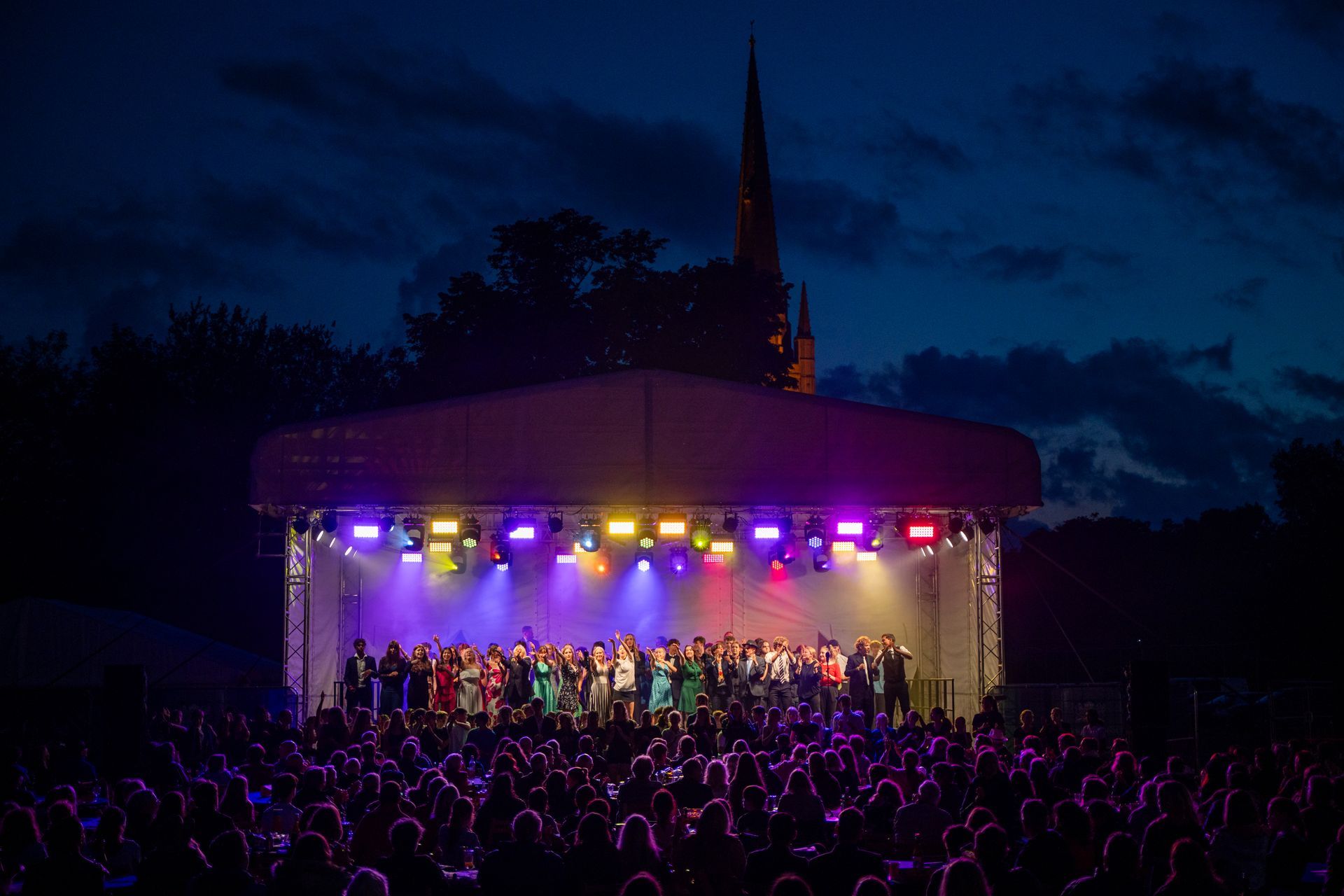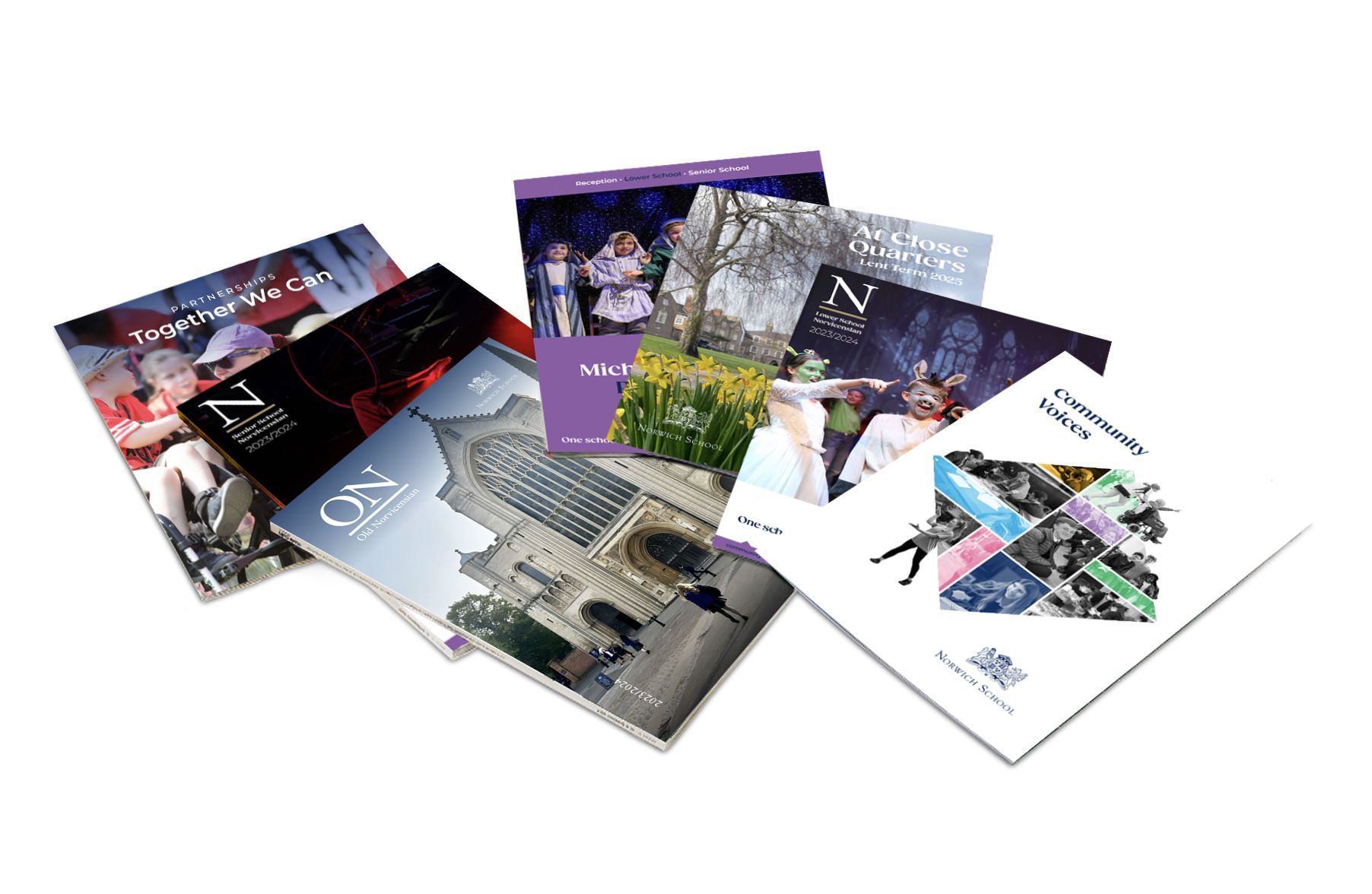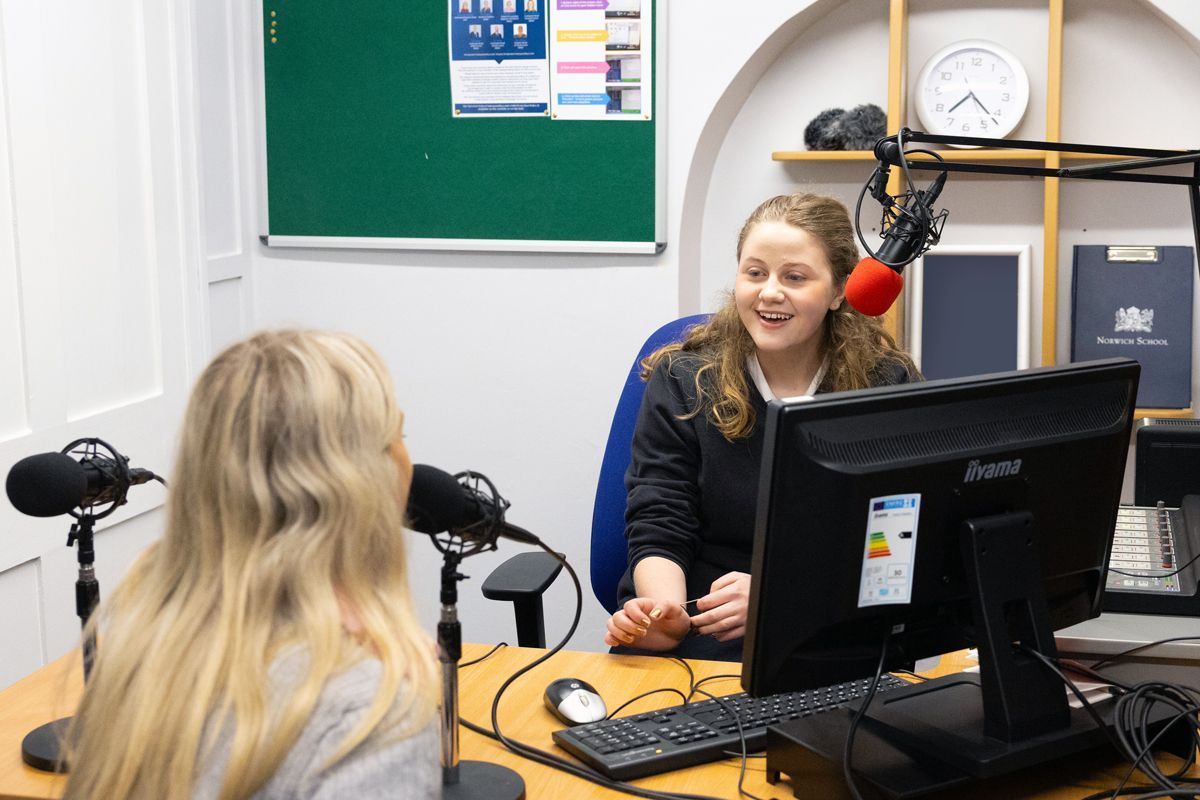News & Events
Latest News From the Senior and Lower Schools
Lower School News
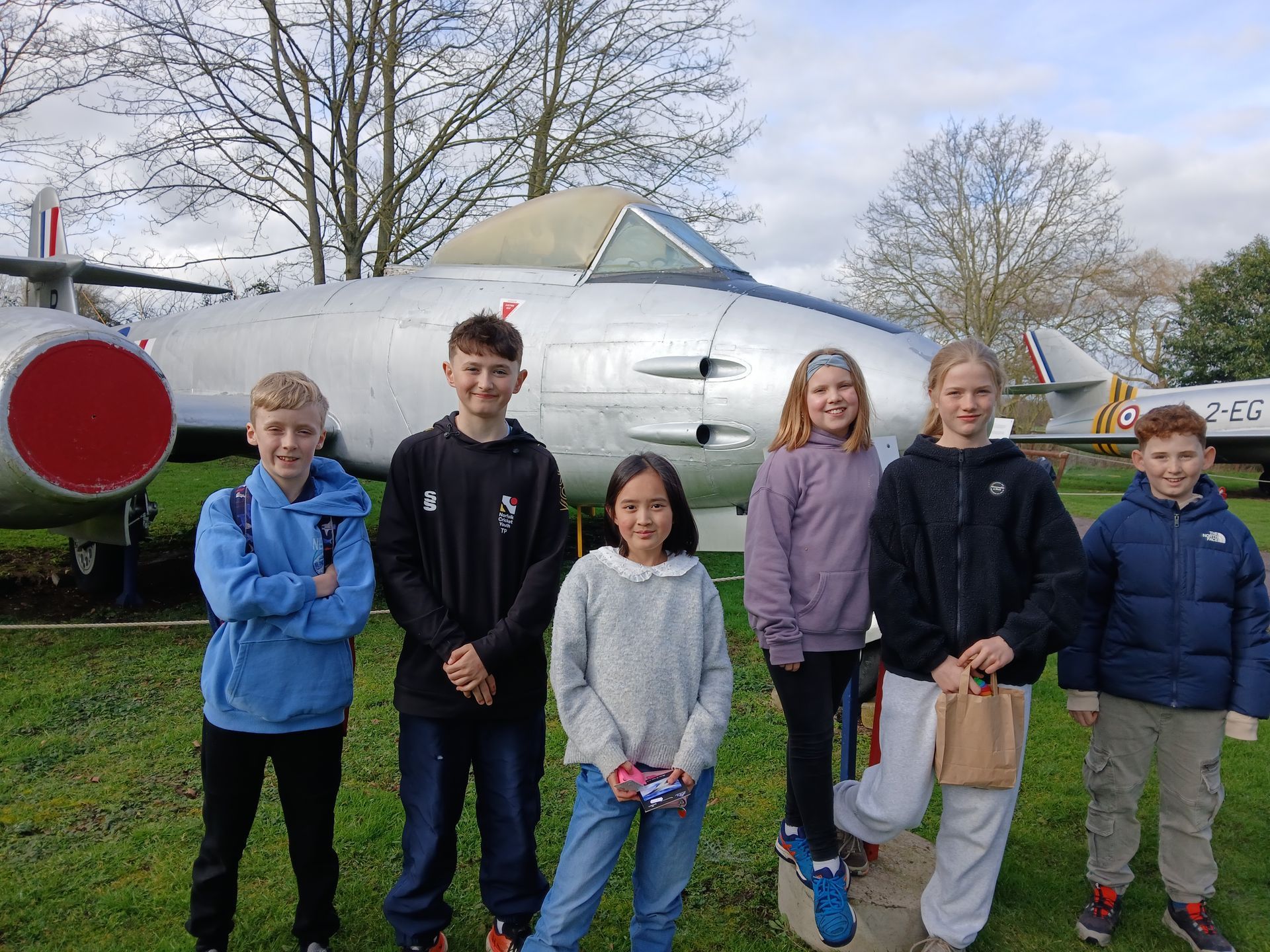
The Jemison Group enjoyed an exciting and immersive visit to The Norfolk & Suffolk Aviation Museum. They had the opportunity to sit in a cockpit and learn how to fly, giving them a taste of what it might be like to be a pilot. They explored the exhibits and were even able to handle some weapons. They also travelled back in time to the Second World War, stepping inside an Anderson Shelter during an air raid in Norwich. As part of the day, pupils learned how to map flight paths, linking history with geography and developing their understanding of navigation. It was a memorable visit that deepened their knowledge and sparked plenty of curiosity.
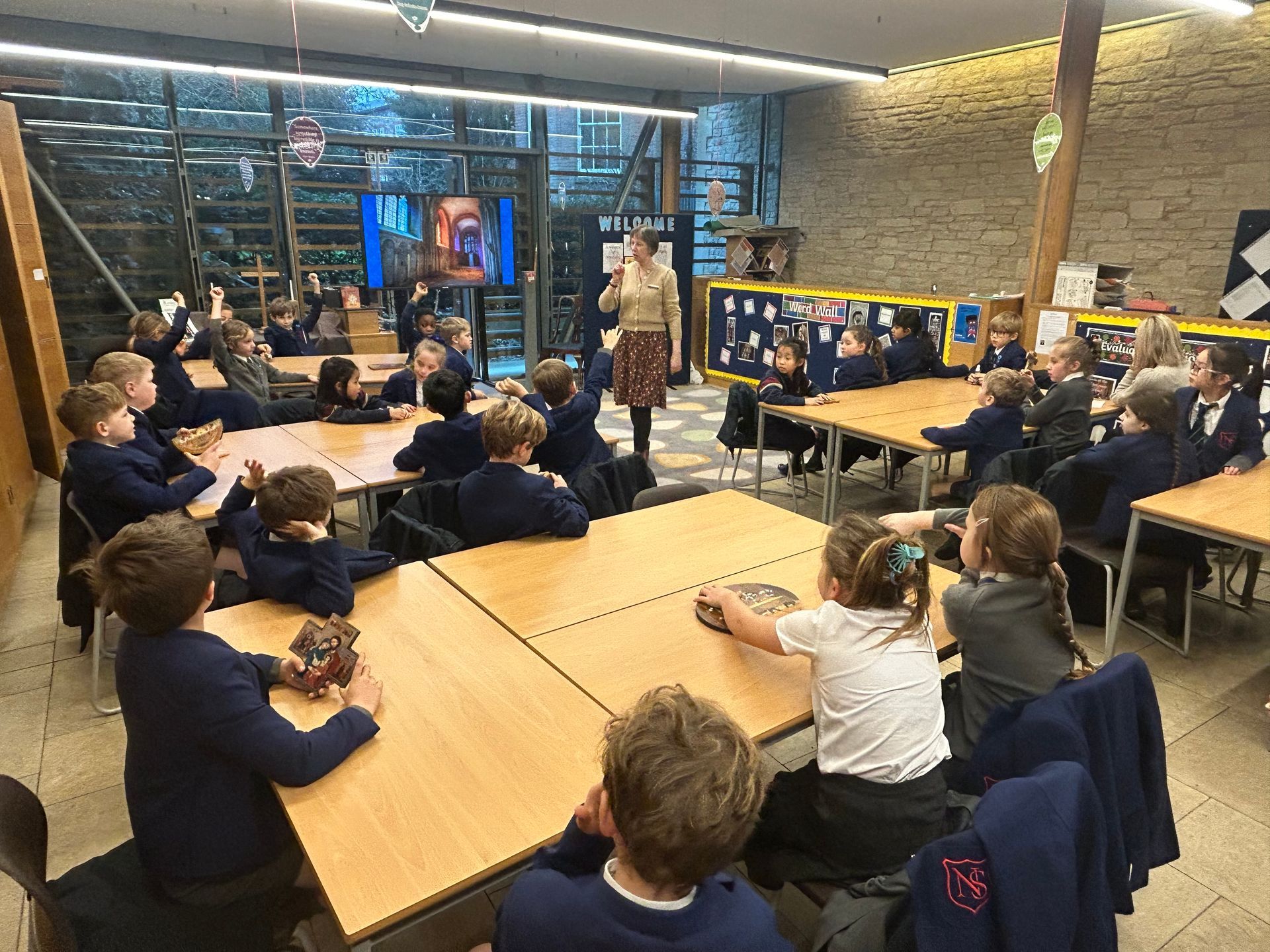
On Tuesday 10 February, Lower Twos visited Norwich Cathedral for a morning of rich, cross-curricular learning. The children explored the significance of stained-glass windows and how they were used to tell Bible stories to people in the past. They learned about the history of St Julian and their connection to Norwich and studied how key moments in Jesus’ life are portrayed through the cathedral windows. Pupils showed curiosity, asked thoughtful questions, and represented the school brilliantly.
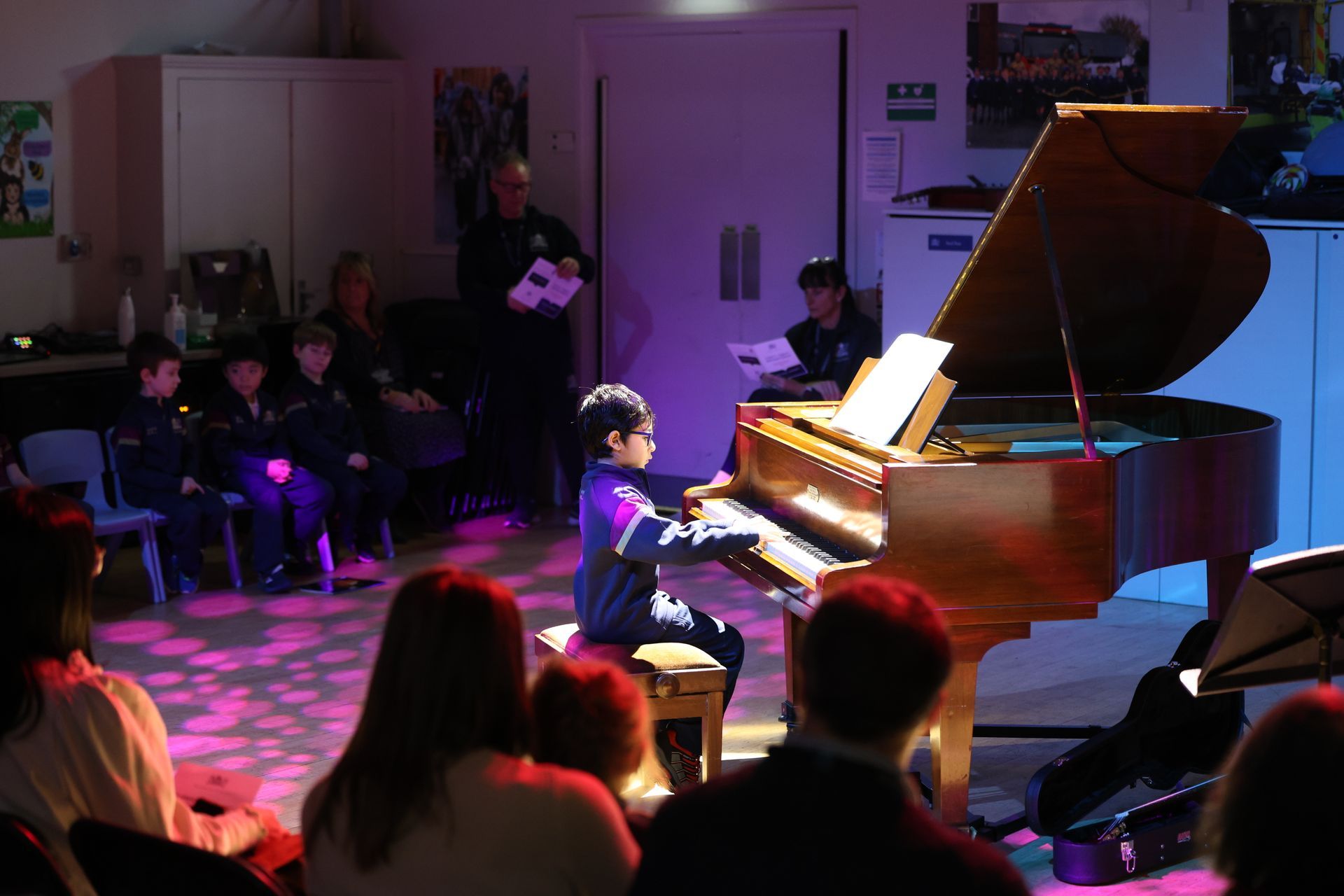
What a joyful, toe-tapping concert it was! The hall buzzing with excitement as very young musicians from Lower 1 and Upper 1 (some performing for the very first time) took to the stage, beaming with pride and confidence. From the very first notes, it was clear this was a celebration not just of music, but of courage, enthusiasm, and the sheer fun of performing. Smiling families filled the room, cameras at the ready, soaking up every moment as each of our Lower School pupils shared their hard work and musical imagination. The piano pieces sparkled with variety and character. Familiar melodies like Ode to Joy floated out warmly and confidently, while playful pieces such as Whirleybird , ABC Playtime , and Up and Down Song bounced along with energy and charm. More atmospheric moments appeared too, from the gentle magic of Walking in the Air to the bouncy rhythms of Minnie Mouse Hits The Town! There were also lovely storytelling moments at the piano, with music inspired by wildlife, farmers, and even a cheerful boat ride or two. Every performance, no matter how short was delivered with huge smiles, careful concentration and an infectious sense of joy. Overall, the L1 and U1 Informal Concert was a heart-warming showcase of young talent and growing confidence. The enthusiasm of the performers, the supportive energy of the audience, and the wide range of music made it a truly uplifting event, one that left everyone applauding loudly and walking away with happy hearts. Head of Music Mr Vine said 'another fantastic concert full of music making at its finest! So proud of our L1 and U1 pupils who worked so hard to get their pieces ready. A big thank you as always, to our fabulous visiting music tutors for all their guidance and preparation! Bravo to all!'
Senior School News
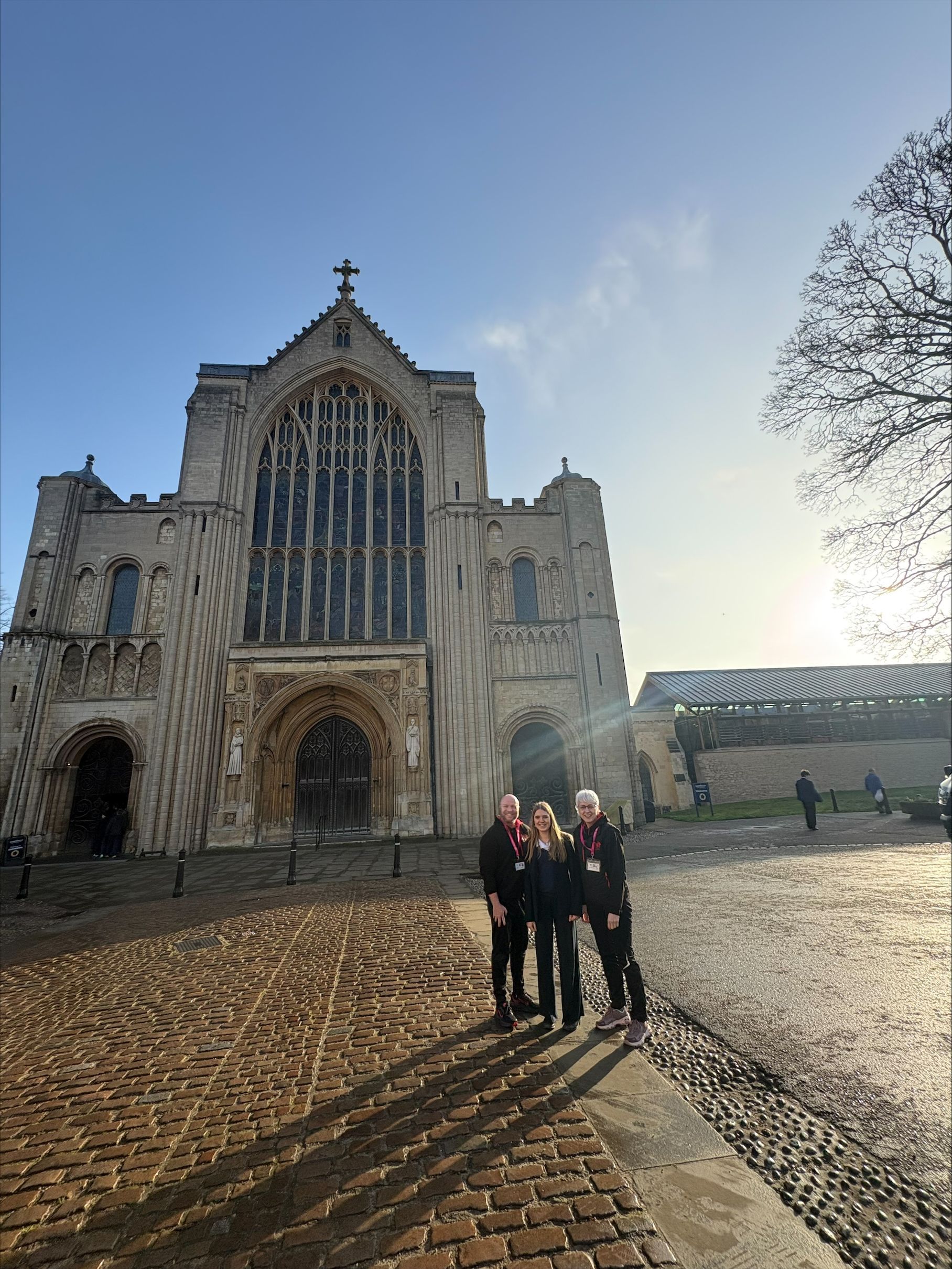
On Wednesday 26 February Able2B and Minnie Andrews (Lower 6) led an assembly in the lead up to Discover Your Ability Day 2026! This year, Norwich School are continuing our work with Able2B by hosting the annual Discover Your Ability Day on the penultimate Sunday of the Trinity Term. The event is rather like a duathlon, with a running and cycling event around the Lower Close (including along the rivers edge), with some participants taking part in wheelchairs and adpated bicycles to make it as inclusive as possible. We have plans to make it bigger and better this year by doubling up with another of our signature events; the Intergenerational Sports Day with Friend in Deed (involving young and old participants alike). This way we can have even more of the Norwich School and wider community involved on the Lower School field than ever before! To prepare for Discover Your Ability Day, pupils who sign up will take part in just 2 or 3 training sessions at the Able2B gym in ahead of June. As this is a family event, family members and friends can also volunteer as marshals and route guides, or just come along to watch the event. We also have Able2B ambassadors linked to each house again like last year - where we will run a competition to get the most members from each house to sign up and take part. (the ambassadors will line up at this point if all able to be there!) Discover your Ability Day is a fantastic opportunity to help out in the local community, as well as gaining valuable skills. This is a highly inspirational charity event, so pupils are encouraged to take part in any way they can. Additionally, taking part in the training sessions and final event can count towards volunteering hours for anyone doing the Duke of Edinburgh award. See below for the talk from Able2B
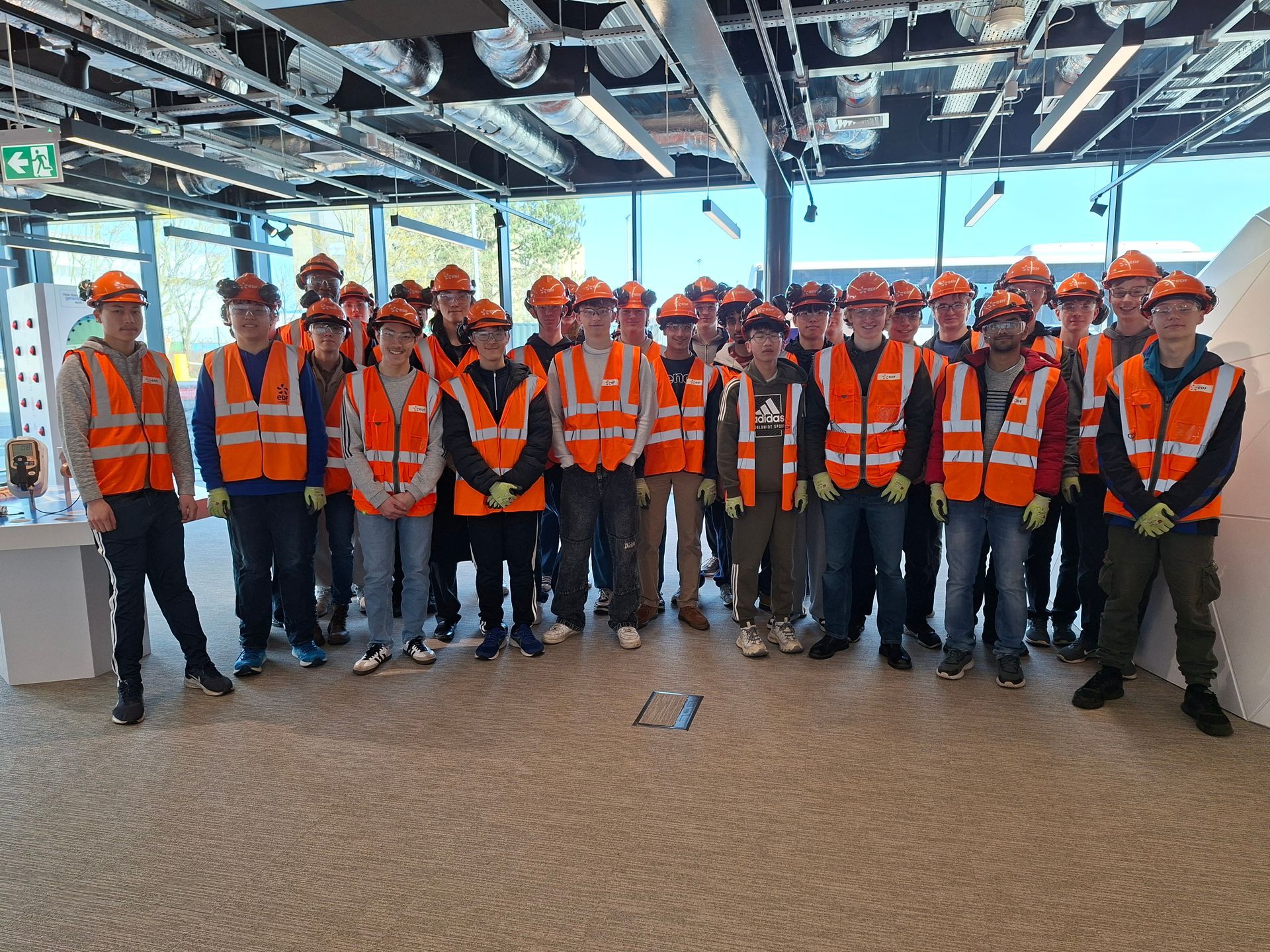
On Wednesday 25 February 2026 a group of 32 A Level Physics pupils visited Sizewell B Nuclear Power Station. After a safety briefing by site staff and a presentation on the physics and engineering involved in the generation of electricity from nuclear fission, pupils were given a comprehensive tour of the site. This included an outside overview of the reactor dome, step-up transformers, sea water intake and National Grid electricity distribution system, and an inside tour of the turbine hall and engineering workshops. It was a fantastic day which provided pupils and staff with a great insight into the practical application of physics and engineering theory to the nuclear industry. Pupil behaviour was impeccable, and they were a credit to the school.
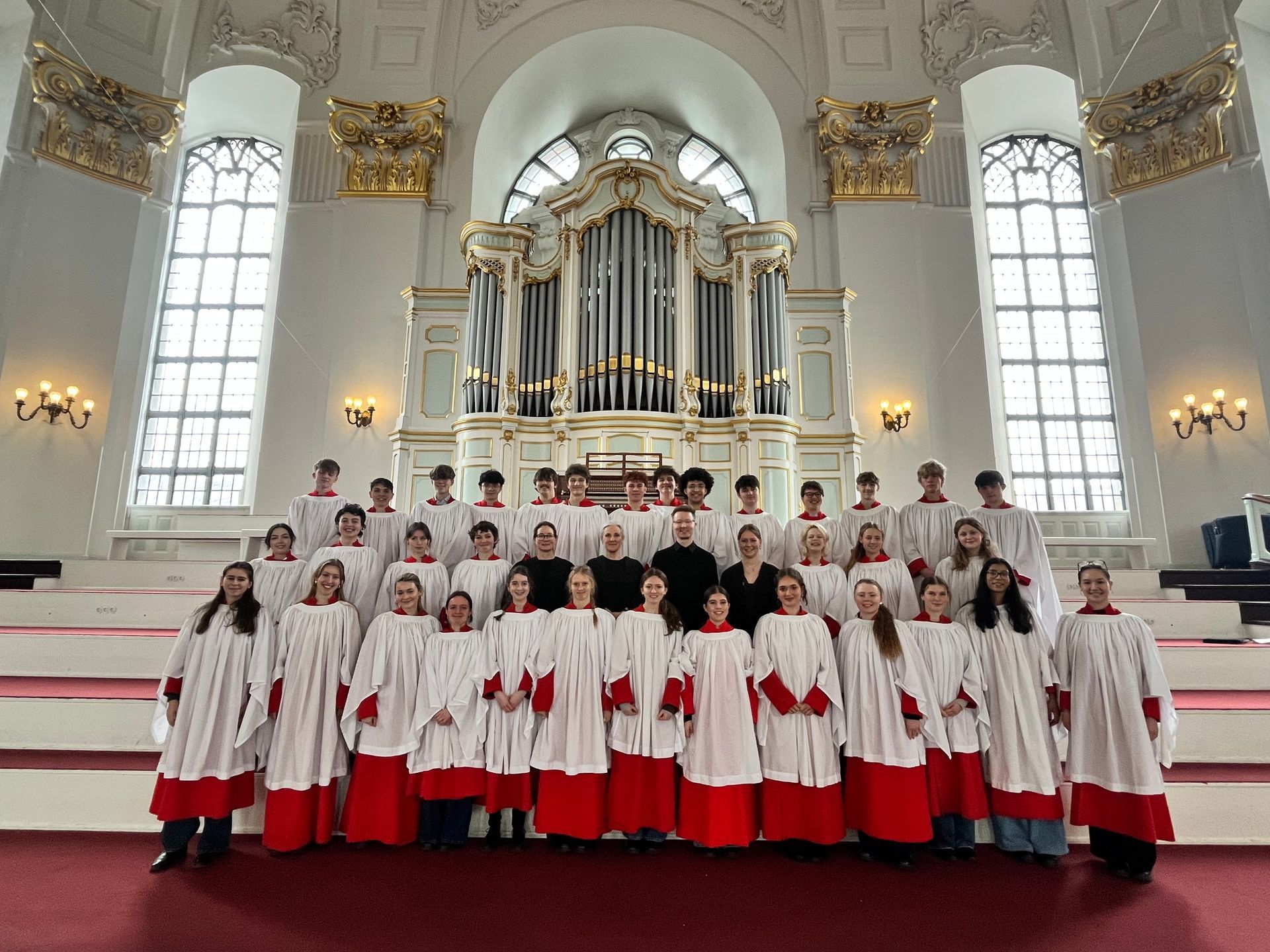
Stephanie Magusin-Vardakou, Upper 6, reports on the Chapel Choir half term trip to Hamburg. In February Half Term, 34 U5, L6 and U6 members of Chapel Choir as well as Ms Walton, Mr Stamp, Miss Clark and Mrs Platten flew to Hamburg for a choir tour. We were greeted with extremely snowy conditions, and many members of the Choir did not hesitate to begin the 4-day long snowball fight. After a restful night’s sleep in the youth hostel and a traditional German breakfast, we set off to St. Michaelis Church, where we sang some traditional English Choral Music, which according to the director of music at the Church was a nice change from all the Bach that is usually sung. On a high from the performance, we set of to our second church, St. Petri where we had a rehearsal, a sang for a prayer meditation and then a full hour’s concert where we sang all the music we prepared. Following this, a delicious supper was had in a nearby restaurant followed by an early night after a tiring day. Our next day, Valentine’s Day, was much more relaxed. Pupils were greeted with heart shaped chocolates by Mrs Platten to commemorate the day, as well as the hostel providing heart shaped pretzel rolls. We set off back to St. Petri where we had a rehearsal before singing in another church, St. Jakobi. Ater a brief sing in St. Katherinen, we went to arguably the highlight of the trip, Minatur Wunderland, the largest model railway system in the world. After plenty of hours of fun, we went to the hostel for supper and had an awards ceremony before bed. On our last day, we sang a Eucharist back in St. Petri with the Hamburg Bach Choir before a long lunch break. We then set off for the Airport, tired but content after a busy and rewarding trip. Thank you to all involved, it was an extremely successful trip!
Blog
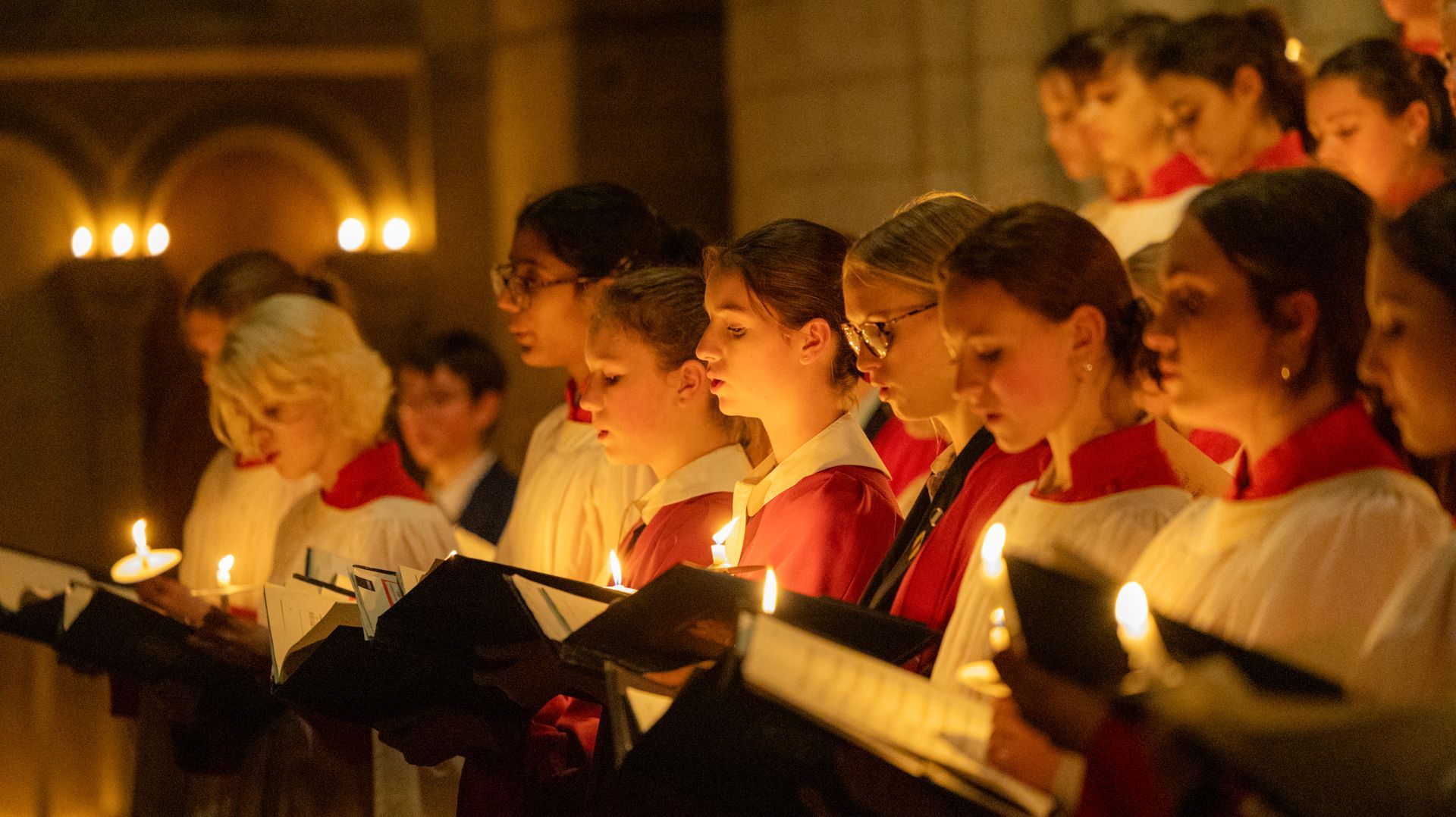
On Saturday 7 May, internationally renowned classical musicians will gather in the beautiful setting of St Nicholas Chapel, King’s Lynn, to honour the music of beloved composer Sir Karl Jenkins during a special fundraising concert hosted by Music in the Burnhams. This concert is the centrepiece of Music in the Burnhams' 2026 programme and will be raising funds for Norfolk and Waveney Mind. The evening, which the composer is due to attend himself, will include performances from the UK’s leading independent orchestra, the British Sinfonietta, the King’s Lynn Festival Chorus and Norwich School Choir, accompanied by acclaimed musicians; cellist Adrian Bradbury, violinists Benedict Holland and Joo Yeon Sir, harpist Alis Huws, euphonium player Dan Thomas, bass baritone Paul Carey Jones and soprano Khrystyna Makar. Conducted by Ben Horden, Music Director of the King’s Lynn Festival Chorus, together they will perform some of Sir Karl’s most celebrated works, such as Cantilena from Symphonic Adiemus, Benedictus from The Armed Man, and Cantata Memoria, which was written in commemoration of the Aberfan disaster. Music in the Burnhams is a charity bringing world-leading classical musicians to venues and schools across north-west Norfolk. Founder, Marian Abramovich, said the Celebration of Sir Karl Jenkins concert will not only provide the opportunity for local communities to witness a rare gathering of renowned musicians, but also support wellbeing services for young people in the area. “We believe classical music should be for all; that’s why we’re passionate about bringing acclaimed musicians to venues across our corner of Norfolk, so as many people as possible - some for the first time - have the chance to experience and enjoy these incredible live performances,” said Marian. “We’re also dedicated to supporting local young people, either through school workshops with visiting musicians or fundraising initiatives. Knowing the intrinsic relationship between music and wellbeing, we’re thrilled to be donating proceeds from this concert - and all our events throughout 2026 - to Norfolk and Waveney Mind to support the expansion of mental health services for young people in West Norfolk.” Marian added: “One of today’s best-loved composers, Sir Karl is a big advocate for mental health support, with his works having previously raised funds for mental health charities aiding military veterans. And one of his most-famous pieces, the poignant Cantata Memoria, pays tribute to those affected by the Aberfan disaster, a terribly tragic event in Welsh history that is approaching its 60 th anniversary this year and left many survivors suffering with profound mental health issues. Sir Karl was therefore a fitting choice for the focus of this major fundraising event.” Music in the Burnhams hopes to raise £20,000 for Norfolk and Waveney Mind by the end of 2026! To book your tickets click here!
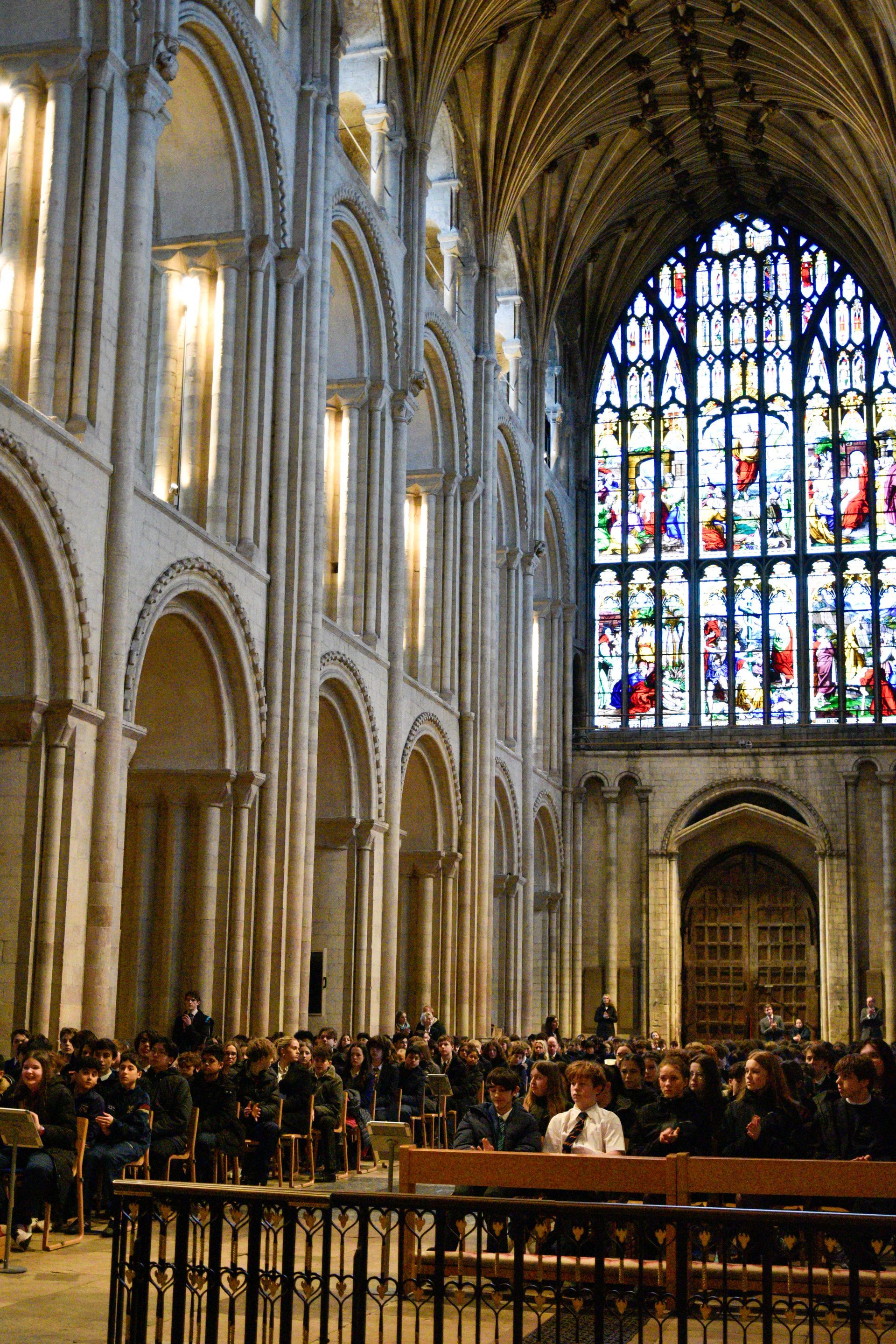
God saw all that he had made, and it was very good. And there was evening, and there was morning—the sixth day. Thus the heavens and the earth were completed in all their vast array. By the seventh day God had finished the work he had been doing; so on the seventh day he rested from all his work. Then God blessed the seventh day and made it holy, because on it he rested from all the work of creating that he had done. (Genesis 1:31 – 2:3) Well done for getting to Friday, everyone; we’re nearly at half term. Sometimes the days of January and February can feel a bit gloomy and cold; if you’ve been feeling like that at all, then spare a thought for some parts of Devon and Cornwall, where it has rained every day this year, and for the residents of Aberdeen, where the sun has disappeared completely for three weeks. When things are like this, there’s a danger that one day just runs into another. I came across this poem recently: Monday is a foggy haze, Tuesday is a frantic daze. Wednesday drags its heavy feet, Thursday thinks of food to eat. Friday shouts, "I'm finally free!" Saturday is a shopping spree. Sunday hides behind the door, And then we start the mess once more. I’m sure none of us really wants life to be like that – a foggy haze or a frantic daze, a mess that just keeps repeating itself. There is some wisdom from the very beginning of the Bible, and which I think can help us here (we heard it in our reading just now). We’re told that on the seventh day God “rested from all his work”. But he doesn’t just collapse, exhausted, on a heavenly sofa and start playing Candy Crush Saga on his phone for the entire weekend. It’s more optimistic than that. “God blessed the seventh day and made it holy , because on it he rested from all the work of creating that he had done.” The opening chapters of Genesis want, more than anything, to teach us some lessons for life – and a couple of lessons for us to learn here are that rest is important and days can be holy . Rest is important . You might feel that’s so obvious it doesn’t need saying – especially if right now you’re feeling ready for a rest. But this might just be something to remember for the future – for a time when your days are no longer dictated by school routines and timetables, and when the phrase ‘work/life balance’ starts to mean something. I had an experience of this myself when I went to university and for the first time I could do what I wanted, when I wanted. The thing was, I always had work that needed doing, and I just sort of did it all the time whenever I had spare moments. I noticed there were certain times when I found it really difficult to work – it was so hard to get going – often on Sundays, in fact. In my third year I made what felt like a bold decision. I decided to try out the Sabbath principle in Genesis; I stopped doing work on Sundays. And it worked for me. It didn’t make any difference to my overall output – I didn’t fall behind – and what was more, I was happier. A simple, perhaps an obvious lesson: rest is something we need to do, just as work is something we need to do. Days can be holy . The word ‘holy’ here means simply ‘set apart’ – which is to say that some days are different to others; they have a particular purpose. We are at a time of year where there is a confluence of special days in the calendar. For one thing it’s Valentine’s Day tomorrow, a day for telling people we love them. Tuesday is Pancake Day; be aware as well that for Muslims it’s the beginning of the holy month of Ramadan. For Christians, Wednesday is Ash Wednesday, the beginning of Lent – a time set apart for serious thinking about our habits and attitudes. After we return from half term it will be the Hindu festival of Holi, which celebrates brightening Spring Days and the triumph of good over evil. Whether you consider yourself an observer of these days or not, it is good to be aware of them; partly, of course, so that you can understand the people around you who are observing these holy days; but also to learn the principle that we do need red-letter days in our calendars – it is a human necessity – otherwise life becomes a foggy haze. Perhaps start with this half-term; see the days ahead of you as set apart, special, more than just Candy-Crush-on-the-sofa time. Remember that the word “holiday” itself is the words ‘holy’ and ‘day’ joined together. I started with a rather pessimistic poem; I want to finish with a more optimistic one. This is called ‘Mela’, which is the Sanskrit word for ‘festival’. Listen to the reading; listen to the hymn. Today it is a holy day. Let us think of him Who guided us, and brought us From darkness into light. Into sudden morning, out of darkest night. Let us eat together; let us take our ease. Let us throw our weapons down. Here, we are at peace. And before I finish, a little bit of good news: the sun has come out in Aberdeen, and the forecast is sunshine all day tomorrow…
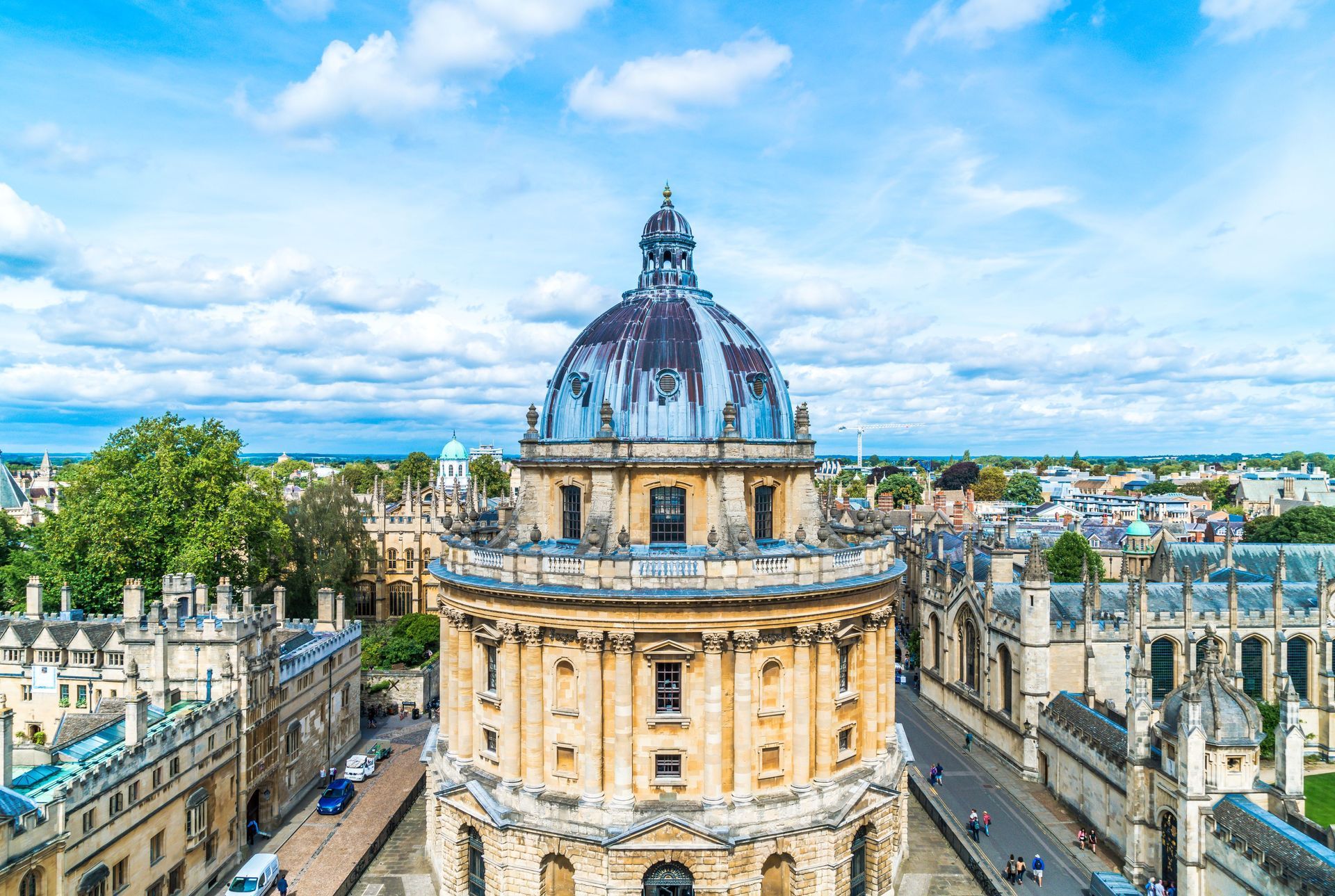
170 Norwich School applications have been sent to UCAS (universities and colleges admissions service) this academic year. As is the norm at this point in the year, many universities (including medical schools and leading London universities such as LSE and Imperial) are still making decisions on which applicants to offer places to. We will share more successes later this term and at the start of next term. We congratulate all pupils on their university offers and offers for apprenticeships and degree apprenticeships received so far. We hope these pupils will understand that the size of the Upper 6 year group means we cannot celebrate publicly all offers. The offers listed here have been chosen to include those for the most competitive courses and to give the school community a taste of the huge variety of courses and institutions that Norwich School pupils apply for. The school’s Apply Plus Programme is run by Mr Pearce. It supports pupils applying to academic courses that require admissions tests and/or interviews. Apply Plus offers so far this cycle: Arthur Dannatt – Mathematics at the University of Warwick Ben Griffiths – Classics at the University of Oxford Melissa Hawkings – Music at the University of Cambridge Celeste Horsman – English Language and Literature at the University of Oxford Thomas Hsia – Computer Science at University of Warwick Thomas Irvine – Medicine at the University of Cambridge Georgia Lloyd – Psychological and Behavioural Sciences at the University of Cambridge Adit Raje – Physics at the University of Oxford Charlotte Scott – Modern and Medieval Languages at the University of Cambridge Emile Verschoor – Natural Sciences at the University of Cambridge Sydney Wylie (ON) – English at the University of Cambridge STEM: Ethan Buskell – Mechanical Engineering at the University of Bath Josie Dixon – Marine Biology at the University of St. Andrews Jeremy Lo – Computer Science at the University of Manchester Humanities: Daisy Massey – Journalism Studies at the University of Sheffield Edith Martin – Liberal Arts at King’s College London (KCL) Alice Strike – History at University of Durham Social Sciences: Rosie Pank – Politics and Sociology with Study Abroad at the University of Exeter Jack Paterson – Business and Management at the University of Durham Sophie Scott – Law at the University of York Languages: Isla Bowles – French and Spanish at University College London (UCL) Tristan Mackay – Philosophy and Modern Languages at the University of Bristol Lily Mei McGruddy-Lo – Japanese at the University of Leeds Creatives: Hollie Blackham – Interior Design at the University for the Creative Arts (Canterbury) Rachel Dean – Drama at the University of Warwick Hettie Holden – Architecture at the University of Sheffield Sport: Nick Conway – full rowing scholarship to University of Washington, USA William Faircloth – full soccer (football) scholarship to University of Wisconsin, USA Niamh Rushton – Sport Management and Coaching with professional placement at University of Bath
Meet the Team
Click on the images to read individual biographies.

